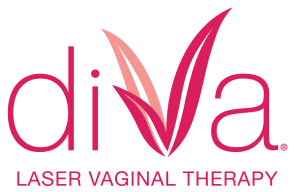SEXUAL WELLNESS
4 in 10 women suffer from sexual dysfunction at various stages of their life
Here are some examples :

Hypoactive sexual desire disorder (low libido)

Female sexual arousal disorder

Female orgasmic disorder

Dyspareunia (painful intercourse)
Not well-known yet, treatments for improving women’s sexual function and wellness are actually varied and accessible, both for premenopausal and menopausal women. Director of the women’s sexual wellness department for Victoria Park Medispa across Canada, Dr. Buzaglo believes firmly that every woman should feel comfortable speaking about her sexual concerns with her gynaecologist.
No woman should ever suffer in silence! Today, there are many medical treatments and procedures that are available to improve sexual function, overall well-being and health. Dr. Buzaglo offers these services as part of her practice and is the first gynaecologist in Quebec offering the o-shot® procedure.

Laser vaginal rejuvenation using the diVa
diVa is a no-downtime non-surgical vaginal treatment that uses the world’s first and only revolutionary Hybrid Fractional Laser (HFL) technology. With two types of energy the treatment aids in resurfacing the vaginal canal, while also stimulating the re-growth of new collagen, blood vessels, and nerve endings in the deeper vaginal wall (lamina propria).
A diVa treatment consists of the insertion of an endovaginal laser probe into the vaginal canal for approximately 5 minutes, over 3 sessions, 4-6 weeks apart, for optimal results. Some women will like to do touch-up sessions every 12-18 months.
This results in:
- Increased lubrication and sensation during intercourse
- Tightened vaginal canal
- Enhanced ability to reach orgasm
- Improved control over mild stress urinary incontinence
- Significant improvement in confidence and quality of life
diVa can improve the following conditions:
- Vaginal laxity (the loss of elasticity and tone)
- Vaginal atrophy
- Overactive bladder
- Mild stress urinary incontinence
- Mild pelvic organ prolapse
- Painful intercourse caused by dryness
- Genitourinary syndrome of menopause (GSM)
Emsella
O-shot®
G-spot amplification
The G-spot amplification procedure involves injection of PRP (platelet-rich plasma) to the G-spot. The G-spot (or Grafenberg Spot) is an erogenous zone beneath the surface of the anterior vaginal wall. The G-spot amplification procedure results in a more pronounced G-spot leading to heightened sexual arousal and vaginal orgasms with stimulation. The G-Shot is a safe and painless procedure which takes less than 20 minutes between the blood draw and injection.
Botox for vaginismus
Vaginismus is a condition where there is involuntary contraction of the muscles of the perineum that prevents vaginal penetration.
Botulinum Toxin is used to paralyze the muscles into which it is injected and prevents them from contracting. Specifically for vaginismus, Botox acts to relax the spastic vulvo-vaginal muscles in three different areas. Once Botox has relaxed the muscles, vaginal dilators can be used to gradually build up tolerance and allow penetration within a few weeks. There is usually no need for additional treatments with Botox for this condition as the viscous cycle of fear/contraction/pain of the vulvo-vaginal muscles is broken after one treatment. This treatment can be combined with psychotherapy for a multi-disciplinary approach and optimal results.
Profractional laser for lichen sclerosis
Lichen sclerosis is an autoimmune dermatosis that in women typically involves the vulvar area and can significantly impact quality of life and sexual function. Symptoms include genital itching, irritation and pain, and over time there is loss of the normal architecture of the outer and inner labia associated with scarring and fusion. This is a progressive condition that increases the risk of vulvar cancer. To date, regular and consistent use of topical corticosteroid ointments is the most effective treatment that also reduces the progression of the disease, although adverse effects are possible, especially with long-term application.
Profractional laser for lichen sclerosis is a promising new treatment option for lichen sclerosis that can improve quality of life and sexual function. A vulvar biopsy is required to determine the depth of the disease and guide the depth of the treatment. After application of local anesthesia, a laser device is applied to the vulvar area affected by lichen sclerosis. This twenty minute procedure requires 24h of downtime. To date, data shows that combined with PRP (platelet-rich plasma) application after the laser procedure, only one treatment is necessary for sustainable outcomes. Profractional laser reduces the symptoms of lichen sclerosis by triggering wound healing, accelerating tissue reconstruction causing new, healthy tissue to rise to the surface of the vulva.
